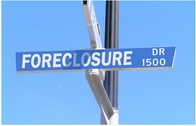Advertisement
NAHB statement: New guidelines needed for appraising distressed properties

Using foreclosed and distressed sales as comparables with appraisals on single-family homes without adequately reflecting the differences in the condition of the respective properties is needlessly driving down home values, according to the National Association of Home Builders (NAHB). “Any home buyer can recognize the difference between a well-kept home and a distressed property that is damaged or not properly maintained. So it only makes sense that an appraiser should be required to consider the overall condition of a property and the specific factors related to a foreclosure or distressed property sale when selecting and adjusting the value of comparables,” said NAHB President Joe Robson, a home builder from Tulsa, Okla.
Appraisers are often only required to conduct exterior inspections of properties that are being used as comparables because they are normally unable to enter these homes and examine their interiors. Too often, properties that have been subject to foreclosure or distressed sales have issues related to deferred maintenance or internal damage that an external inspection simply cannot reveal.
“While most appraisers do a fine job, there needs to be proper regulatory guidelines for those who use distressed or foreclosed properties as comparables when determining home values,” said Robson. “It is essential that appraisers have the proper experience and guidance to accurately assess values in distressed markets.”
In neighborhoods where comps include a large number of short sales or foreclosures, appraisers should have the option of expanding the geographic area or extending the time frame for eligible sales to get a more representative basket of the value of homes sold in the area, Robson added. Currently, improper or insufficient adjustments to the comparable values of foreclosed and/or distressed homes often results in the undervaluation of new sales transactions.
“This practice must be corrected because it contributes to the continuing downward spiral in home prices, forestalling the economic recovery,” said Robson.
For more information, visit www.nahb.org.
About the author





